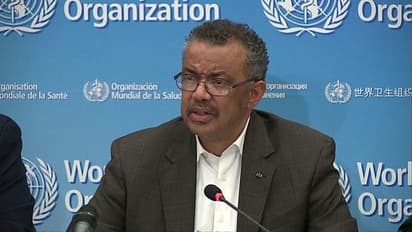WHO deeply concerned about COVID-19 impact on HIV global response

Synopsis
WHO stated that progress in reducing AIDS-related deaths can be "accelerated by stepping up efforts to tackle comorbidities and opportunistic infections including TB, Hepatitis and COVID-19"
Geneva: World Health Organisation (WHO) is deeply concerned about the impact of COVID-19 on the global response to HIV, its Director General Dr Tedros Adhanom Ghebreyesus has said.
"A new WHO survey showed access to HIV medicines has been significantly curtailed as a result of the pandemic. 73 countries have reported that they are at risk of stock-outs of antiretroviral medicines (ARVs)," the UN health body chief said.
"To mitigate the impact of the pandemic on treatment access, WHO recommended that all countries prescribe ARVs for longer periods of time - up to six months while shoring up the supply chain for all medicines," said Tedros.
The WHO DG highlighted that in 2018 and 2019, the number of new HIV infections stabilised at 1.7 million annually and there was only a modest "progress in stalling'' because HIV prevention and testing services are not reaching the groups that need them most. "Improved targeting of proven prevention and testing interventions and services - including PrEP and HIV self-testing - will be critical to reinvigorating the global response to HIV," he said.
He stated that progress in reducing AIDS-related deaths can be "accelerated by stepping up efforts to tackle comorbidities and opportunistic infections including TB, Hepatitis and new threats like COVID-19".
"While tackling COVID-19 is a global priority we must not turn our backs on the 38 million people living with HIV and the millions more at risk of infection. Now is the time to redouble our efforts, build national unity and global solidarity to tackle both the COVID-19 pandemic and diseases like HIV," he said.
According to latest data from Johns Hopkins University, the number of coronavirus cases worldwide have exceeded 11.5 million while the death toll has surged past 5 lakh.
Check the Breaking News Today and Latest News from across India and around the world. Stay updated with the latest World News and global developments from politics to economy and current affairs. Get in-depth coverage of China News, Europe News, Pakistan News, and South Asia News, along with top headlines from the UK and US. Follow expert analysis, international trends, and breaking updates from around the globe. Download the Asianet News Official App from the Android Play Store and iPhone App Store for accurate and timely news updates anytime, anywhere.